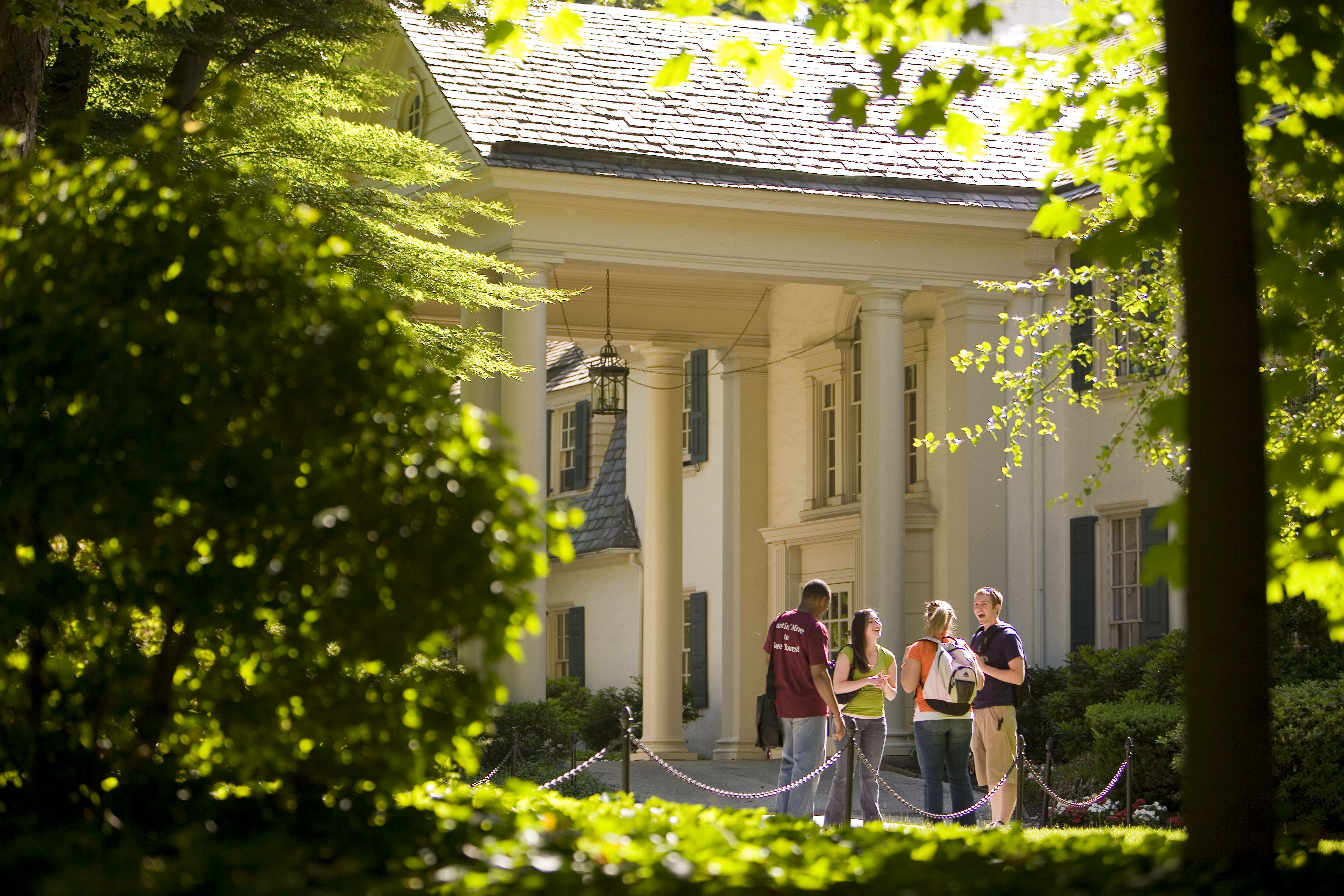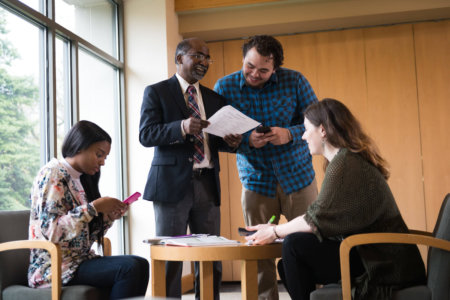Across industries, the demands of tomorrow transcend the conventions of today — this is a fact Thomas Jefferson University’s School of Design & Engineering understands best. Hence, they are committed to producing a new breed of professionals who can infuse their work with the spark of creativity that propels innovation forward.
With a curriculum designed to foster interdisciplinary exploration and communication, students here are encouraged to think beyond the confines of their respective disciplines and embrace the limitless possibilities that arise from collaboration. Of course, they are guided by experts every step of the way — the school’s faculty comprises practicing professionals with insights that breathe relevance into classrooms.
Their supervision is crucial as students work with state-of-the-art facilities, tools, and resources designed to bring their ideas to life or embark on study abroad opportunities that offer a global perspective on design and engineering. Delivered from Jefferson’s East Falls Campus, all of the school’s postgraduate programs unlock the full experience, but these five stand out for their ability to redefine what is possible.

Thomas Jefferson University – School of Design & Engineering East Falls campus.
MS in Textile Technology
Gone are the days when textile technology was confined to traditional fabrics and clothing. Today, it extends to materials used in aerospace, medical devices, and even architecture — consider the development of smart textiles embedded with sensors to monitor health or regulate temperature.
Jefferson’s MS in Textile Technology offers students an immersive and collaborative experience that merges theoretical learning with practical laboratory experiences. The curriculum focuses on cutting-edge technical processes, covering the development, production, and characterization of fibers, yarns, fabrics, and textile-based products. Outside the classroom, students benefit from hands-on experience with advanced equipment in the Fashion and Textiles Futures Center and the Grundy Lab, preparing them to take on professional tasks as soon as they graduate.
MS in Industrial Design
Students keen on enhancing user experience and solving complex problems can opt for the MS in Industrial Design. Ranked seventh in the US and fourth in the East by DesignIntelligence, this program can teach them to combine form and function, ensuring future products not only look good but also perform well.
Through hands-on project work, they learn to navigate the collaborative and dynamic landscape of product development, working with product users, researchers, businesspeople, engineers and manufacturers to create solutions that serve users, societies, and the world. With flexible scheduling options to accommodate busy professionals, the program focuses on creative research, interdisciplinary collaboration, intelligent product design, and global perspectives.
MS in User Experience & Interaction Design
From mobile apps to websites, the success of technology hinges on how well users can navigate and interact with it. In light of this, the two-year MS in User Experience & Interaction Design equips students with the skills to create user-centric designs that anticipate and meet the needs of an ever-evolving user base.
Through hands-on learning, they hone their abilities in planning, organizing, and executing interactive visual design. The curriculum also emphasizes soft skills like critical thinking and problem-solving just as much as it focuses on digital technologies, analytics, and information design. Pair this level of breadth with options for advanced placement and graduates are prepared to lead future innovation in communication and interaction across diverse digital platforms.

Teams gained valuable insights from BREEO’s in-house design staff, which include two Jefferson Industrial Design alumni: Chris Boehmer (BsID ’13) and Rick Griscom (BsID ’12). Source: Thomas Jefferson University
MS in Biopharmaceutical Process Engineering
In the biopharmaceutical field, creative thinking is essential in optimizing manufacturing processes to ensure efficiency and quality while adhering to strict regulatory standards. Through the MS in Biopharmaceutical Process Engineering, students learn to apply engineering principles creatively to tackle challenges in biopharmaceutical production and drive medical advancements.
Through intensive laboratory sessions in the Jefferson Institute for Bioprocessing’s cutting-edge pilot-scale facility, students gain hands-on experience with advanced technologies. Meanwhile, group-based coursework covers upstream and downstream operations, bioanalytical techniques, quality by design principles, regulatory compliance, and process applications essential for entering the biopharmaceutical workforce.
MS in Engineering
Whether it’s sustainable infrastructure, renewable energy, or space exploration, creativity plays a key role in finding solutions in the engineering field. This is precisely why Jefferson’s MS in Engineering nurtures creative thinking alongside technical expertise. Through a diverse range of engineering science courses and a capstone thesis, students are prepared to make significant contributions to advanced manufacturing technologies.
The concentration in Textile Engineering focuses on developing advanced expertise in fibrous material development, fabric formation, product testing, and more. Ideal for those with backgrounds in science or engineering, the program covers the latest technical processes in textile manufacturing and grants access to hands-on experiences in Jefferson’s Fashion and Textiles Futures Center.
Follow Thomas Jefferson University on Facebook, X, Instagram, and YouTube













